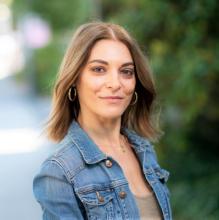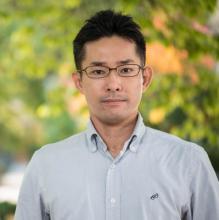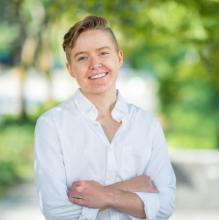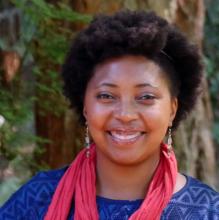Amid growing opposition in India to the expansion of nuclear power, and increasing crackdown Prerna plans to make a documentary on how different groups of people in India view the risks of nuclear energy. Interviewing people living near nuclear plants and nearby cities like Mumbai, Prerna hopes her work will create a more engaged dialogue and push for better informed energy policies in India.
Research Description
The Indian state is facing big decisions in the energy sector in the context of ever-increasing energy demand and the problem of climate change. In one response to this situation, the state has announced an ambitious plan of expanding nuclear power; it projects more than doubling its nuclear generation capacity over the next decade. However, since the 1980s, every new nuclear project in India has been met with local protests. The government’s response to these protests is to crack down on the opposition. My proposed work for PSI aims to further the central aim of my research: to better understand the public’s different responses to nuclear technology, specifically their perception of risk associated with nuclear energy technology. This becomes even more important given the envisioned scale of expansion of nuclear energy in India. I propose to make a documentary on how different groups of people in India view the risks of nuclear energy. I will be interviewing people living near the Tarapur nuclear power plant (India's oldest) and the nearby metropolitan city of Mumbai. What I will look for in these interviews is what narratives people will have to accompany their perspectives about nuclear energy. These interviews will help us understand the acceptance or rejection of nuclear energy among different groups within India. There are theoretical reasons to be engaged in this work as well. Most of the social science research on risk has been carried out in Western Europe and the United States and does not take into account various factors that are far more important to people in developing countries, including economic pressures and conflicts over land and water. Compensation schemes are difficult to implement in India because a large fraction of the farming population has only informal or formally unrecognized ownership over the land they work on. They are thus vulnerable to being alienated from their land by government policies and political power structures. These are important considerations for India’s energy choices and so ultimately this research aims to push for informed energy policy solutions that keep people’s perspectives at the centre.
What does being a Public Scholar mean to you?
Simply put, being a public scholar to me means keeping people’s interest at the centre of your research. This is not an easy task. In practice it involves understanding people’s interests in all their complexity and diversity, dealing with challenging contradictions and being constantly aware of your positionality and bias as a researcher. Finally, it also means to produce research that can be used as a public good and is accessible to people that may benefit from it.
In what ways do you think the PhD experience can be re-imagined with the Public Scholars Initiative?
I believe PSI can push for an exploration of unconventional research methods driven by the values of public scholarship. It can also help in publishing research in ways that are more accessible, challenging the idea that good research is available only in inaccessible, expensive and jargon-heavy journal articles. Most importantly, connecting public scholars across disciplines will help in providing support to researchers taking unconventional routes in their scholarship.
How do you envision connecting your PhD work with broader career possibilities?
This is an invaluable opportunity for me to delve deeper into two areas that interest me the most: filmmaking and nuclear issues which will be an important part of my career trajectory. I developed a passion for filmmaking during my master’s in media and cultural studies. As part of my degree, I made two documentary films based on the struggles of working-class people in the metropolitan city of Mumbai. I developed a keen interest in issues related to nuclear energy and weapons in my undergraduate degree when I started volunteering with the Delhi-based anti-nuclear organization, Coalition for Nuclear Disarmament and Peace (CNDP). I have since been academically and publicly engaged with nuclear issues in India. This work will help me in finding connections between these two interests for my future career.
How does your research engage with the larger community and social partners?
My research engages with the larger community in two ways. First, the medium of a documentary allows the research participants to narrate their stories and views of risk from nuclear energy in their own words, allowing for a virtual conversation to be created between different sections of the Indian society. Secondly, it will allow me to create an engaging product that can be used to communicate with an audience wider than the academic community by for instance submitting the film to festivals such as Uranium Film Festival.
Why did you decide to pursue a graduate degree?
It is a challenging task to pursue a socially beneficial career with no strings attached. It is even more challenging to have the freedom to explore your interests and strengths while pursuing such a career. The university space can luckily help in fulfilling these twin goals albeit in a highly competitive environment. Further, the current Indian government under Modi has carried a serious assault on non-governmental organizations and civil society groups that have raised questions about their policy decisions. As a result, these spaces are shrinking fast in India, pursuing a graduate degree was a way for me to pursue my interests with relatively more freedom and financial security.
Why did you choose to come to British Columbia and study at UBC?
I highly value the interdisciplinary nature and problem focussed approach of the Institute for Resources, Environment and Sustainability with which I am primarily associated. Further, I was keen to work with my supervisor Prof M.V. Ramana who has extensive knowledge and astute analysis of nuclear energy covering its economic, political and environmental dimensions. At IRES I was looking forward to working with Dr. Terre Satterfield who is an expert in risk perception. Canada’s health care system as opposed to the US and some other countries was a plus point as well.




